Ramadan
Ramadan, also referred to as Ramzan in India, is the fourth pillar of Islam and the ninth month of the Islamic calendar. It is a month-long celebration marked by fasting and prayers, when Muslims abstain from eating, drinking, and smoking from dawn until sunset. This year, Ramadan is being celebrated in most countries from 22 March and until the celebration of Eid al-Fitr on 21 April. As Ramadan traditions, such as meeting family and friends for meals after sunset, had been restricted due to the COVID-19 pandemic for the past few years, the festival is expected to be celebrated on a greater scale in 2023 with most countries lifting pandemic restrictions.
Ramadan Celebrations across APAC and the Middle East

INDIA : 22 March to 21 April
- All COVID-19 restrictions have been lifted by central and state governments.
- State-wise regulations:
- Bihar government has allowed Muslim employees to arrive one hour early and leave one hour before the scheduled office time.
- Andhra Pradesh government has granted Muslim employees of the public sector an hour flexibility of office timing.
- No such restrictions have been implemented for Ramadan markets and on gathering.

India is home to around 204 million Muslims, making it the world’s third largest country with Muslim population. Ramadan markets and festive shopping are likely to cause traffic congestions in the vicinity of mosques and marketplaces across India, especially in cities like Srinagar, Aligarh, Hyderabad, Lucknow, Delhi, and Mumbai. Areas in metro cities that are likely to face traffic disruptions are as follows:
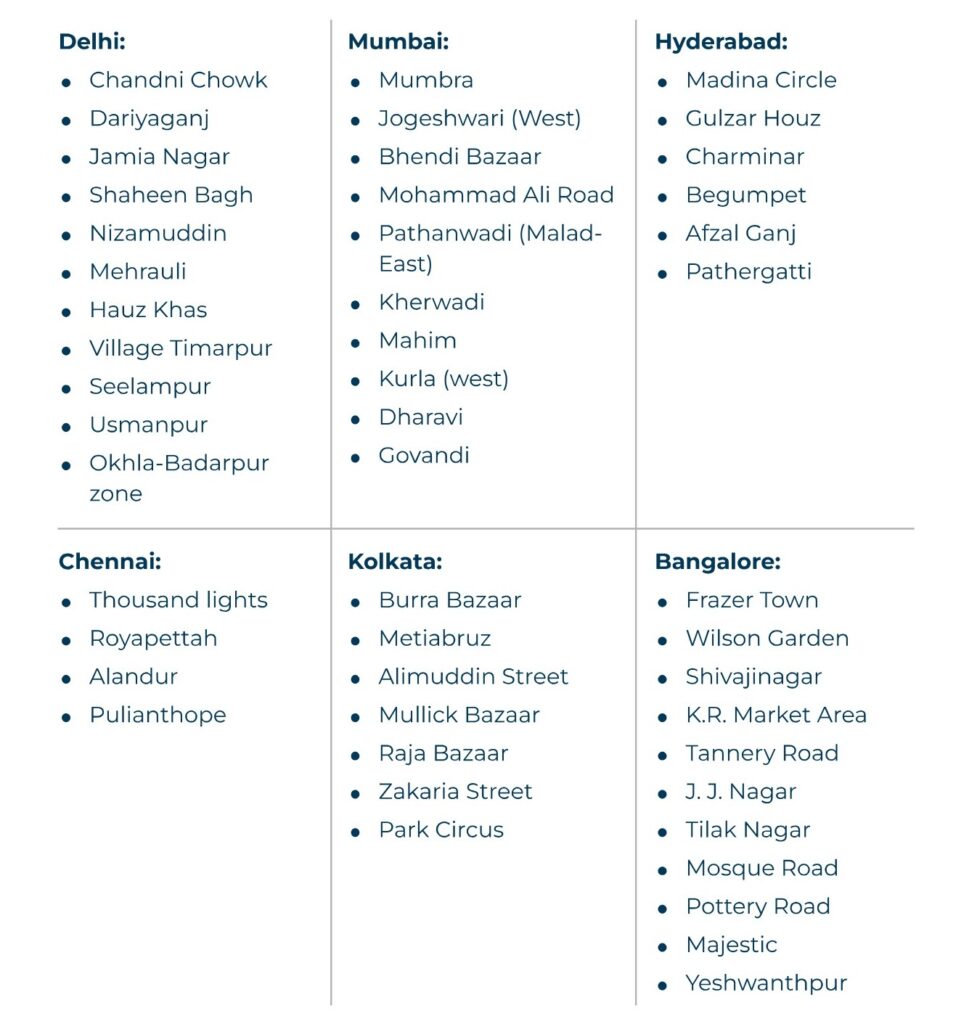
Global regions
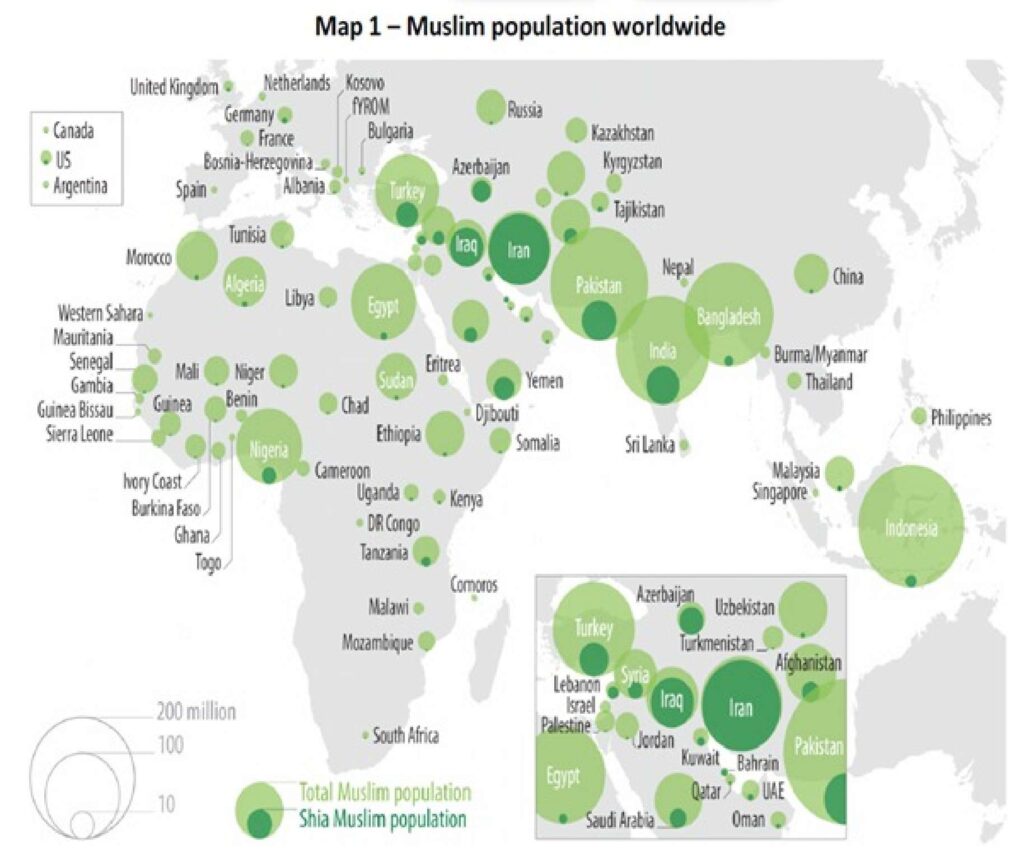
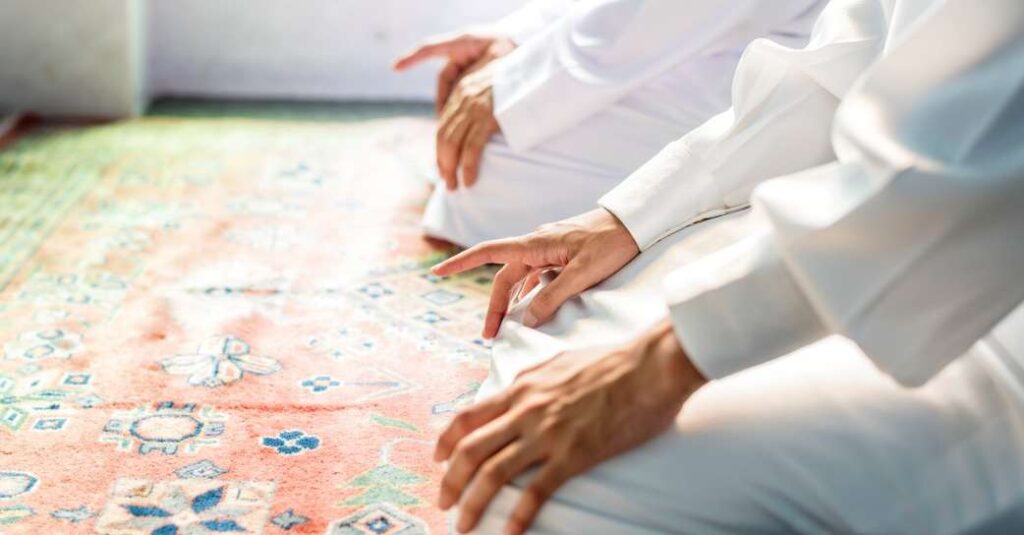
APAC
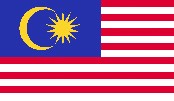
MALAYSIA : 22 March to 21 April
- Most COVID-19 restrictions have been lifted by central and state governments.
- There 29 locations nationwide have been announced to watch the moon in the evening of 22 March.

HONG KONG: 22 March to 21 Apri
- Most COVID-19 restrictions have been lifted by central and state governments.
- Government has issued several hotline number in different languages for Ramadan enquiry:
- For Cantonese: 21395235
- For English: 21395236
- For Bahasa: 21395237
- For Urdu: 21395238
- For further details refer to: https://www.iuhk.org/index.php/ch/

INDONESIA : 22 March to 21 April
- Most COVID-19 restrictions have been lifted by central and state governments.
- Ministry of Religion of the Republic of Indonesia announced that fast schedules for all will be same throughout the country this year.
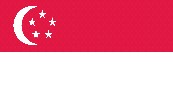
SINGAPORE : 23 March to 21 April
- The central government has lifted all COVID-19 restrictions.
- Ramadan Bazaar is being held at Wisma Geylang Serai and will be operating daily from 1000 hours to 2359 hours during the Ramadan month.

PAKISTAN: 22 March to 20 April
- Most COVID-19 restrictions have been lifted by central and state governments.
- In view of the ongoing political disruption involving former Prime Minister and Tehreek-e-Insaf (PTI) Chairman Imran Khan, heightened security deployments remain likely in Lahore, Karachi and Islamabad.
- Following the killing of the Imam of a mosque in a firing incident at Block 9, Gulistan-e-Jauhar in Karachi, security measures could be heightened.

MIDDLE EAST

SAUDI ARABIA : 02 April to 01 May
- Most COVID-19 restrictions have been lifted by central and state governments.
- Worshippers have been advised to keep prayers brief.
- Clicking pictures of the imam and the worshippers during prayer time is prohibited. Prayers are banned from broadcast in all kinds of media.
- Iftar (meal post sunset) for fasting worshippers should be prepared under the responsibility of the imam and the muezzin. Setting up temporary rooms or tents for Iftar inside mosques are prohibited.
- Malls to operate in two shifts: first, from 1000 hours to 1700 hours; and second shift starts after Isha prayer until 0200 hours.
- Working hours:
- Private:
- Government advised that working hours during the Ramadan month should be 1000 hours to 1500 hours, not exceeding five hours.
- In accordance with the requirements and nature of their work, companies may apply flexible or remote work patterns within the limits of the daily working hours during the days of Ramadan.
- Public:
- Working hours are as follows: from 0900 hours to 1400 hours, Monday through Thursday; from 0900 hours to 1200 hours on Fridays.
- 70 percent of employees to work remotely on Fridays.
- Public schools and universities will be operating remotely on Fridays too.
- Private:


United Arab Emirates: 23 March to 22 April
- The are no COVID-19 restrictions in place.
- Supermarkets, pharmacies, restaurants and businesses will remain open throughout the day during Ramadan. Restaurants are open for dine-in guests and can deliver food all day.
- Malls as well as licensed premises and bars will also remain open.
- Food outlets are no longer required to serve food out of public view during fasting hours. Screens and curtains that were previously used, particularly in malls, are no longer needed. Despite this, people are expected to refrain from eating or drinking publicly, unless in dedicated dining areas.
- Hours of paid parking have been changed during Ramadan. Information about the parking timings, fees and modes of payment are indicated on the parking metres by the parking areas.
- During the final 10 nights of Ramadan, tahajjud (night) prayers will also be held from midnight onwards at mosques.
- Dubai residents will need permission to distribute iftar meals during Ramadan.
- Working hours for offices:
- Private:
- Working hours has been reduced by two hours per day for all employees.
- In accordance with the requirements and nature of their work, companies may apply flexible or remote work patterns within the limits of the daily working hours during the days of Ramadan.
- Any additional hours of work may be considered overtime, for which the workers will need to be paid extra.
- Public:
- From 0900 hours to 1430 hours, Monday through Thursday.
- From 0900 hours to 1200 hours on Fridays.
- Private:

EGYPT: 23 March to 21 April
- COVID-19 restrictions have been eased across the country.
- Taraweeh prayers or night prayers performed during Ramadan, will be allowed without any time constraints this year.
- Seclusion inside mosques, a religious custom during Ramadan, will be allowed at Egyptian mosques for the first time since 2020.
- Working hours for public banks during Ramadan will be from 0930 hours to 1330 hours.
- Shops, restaurants, malls, cafes, and marketplaces will be allowed to operate until 0200 hours throughout the holy month of Ramadan.
- Eateries can run 24-hours a day for home delivery and takeaway services.
- Supermarkets, groceries, bakeries and pharmacies are allowed to operate round the clock.
- The operation schedule of Cairo metro lines during the holy month of Ramadan and Eid Al-Fitr is as follows:
- All metro lines will start operating at 0515 hours.
- The last trains on the first line from Helwan and from New Marg will depart at 0015 hours.
- The last trains on the second line from Shubra Al-Khaima and from Al-Munib will depart at 0030 hours.
- The last train on the third line from Adly Mansour will leave at 0007 hours.
- The last train on the third line of Kit Kat will depart at 0038 hours.
- The last train of the first line will reach the transit station of Anwar Al Sadat at 0100 hours.
- The last train will reach the interchange station of Gamal Abdel Nasser at 0030 hours.
- The last train in Ataba station, the interchange station of the second line with the third, will reach at 0030 hours.

QATAR: 23 March to 21 April
- People are no longer required to show their health status in Ehteraz (Qatar’s contact tracing app) before entering mosques and all COVID-19 restrictions have been lifted.
- Official working hours for civil servants starts from 0900 hours until 1400 hours local time. Employees are also allowed to begin work from 1000 hours, depending on whether their work requirements are met and if they complete the required five hours.
- Private organizations are exempt from the five-hour weekday requirement and employers are allowed to decide about the work schedule during Ramadan.
- The service hours of Doha Metro and Lusail Tram during the month of Ramadan are as follows:
- Saturday to Thursday: From 0630 hours to 0100 hours.
- Friday: From 1400 hours to 0100 hours.

MOROCCO: 23 March to 20 April
- Most COVID-19 restrictions have been relaxed.
- The capacity restrictions for public gatherings have been removed, allowing group Iftars.
- Working time for public workers will be from 0900 hours to 1500 hours from Monday to Friday.
- Daylight savings time has been suspended and the country returned to GMT on 19 March 2023 at 0300 hours.

OMAN: 22 March to 21 April
- Oman’s Supreme Committee has lifted all restrictions regarding COVID-19.
- For private sector establishments, the working hours for Muslim workers will be reduced to six hours per day, with no more than 30 hours per week.
- The official working hours for civil state units will be from 0900 hours to 1400 hours. However, the head of the unit may implement the following flexible hours:
- From 0700 hours to 1200 hours.
- From 0800 hours to 1300 hours.
- From 0900 hours to 1400 hours.
- From 1000 hours to 1500 hours.
- Remote work could be implemented for employees whose job nature allows for it, without affecting the workflow in the unit. However, the number of employees required to attend physically should not be reduced.

KUWAIT: 22 March to 21 April
- Kuwait has scrapped all its COVID-19 restrictions.
- Based on last year’s observation, it is anticipated that the working hours during Ramadan will be from 0930 hours to 1400 hours.

Key Risks
- In the light of the COVID-19 pandemic, gatherings pose the threat of becoming super-spreader events.
- Mass gatherings could pose security challenges in major cities, and chances of petty crimes in prime locations cannot be ruled out.
- Insensitive actions and comments have the potential of escalation, threatening personal safety.
- Roads around major mosques may be blocked during specific times of the day. Increased footfall could lead to travel delays.
- As large number of food stalls are likely be set up near mosques and along the roadsides, traffic congestion can be experienced in these areas during and after Iftar hours.
- Air traffic is expected to be high this Ramadan season amid the festive rush in many countries around this time.
- Shipments and logistics may face delays around this time.
Recommendations
Businesses and Workplace
- Business operations, especially those in Muslim-majority countries, are likely to experience some disruption, such as a reduction in working hours or closure of certain businesses. Advised to be aware of government directives and ensure adherence to the same, and plan work schedules accordingly.
- Advised to be sensitive, respectful, and accommodative of religious and cultural practices.
Health
- Advised to maintain a social distance of at least one meter in gatherings. Ensure proper ventilation if conducting indoor events.
- Maintain a balanced diet meal and keep yourself hydrated.
- Avoid prolonged hours of exposure to sunlight/heat during the day.
- People who are unwell, experiencing COVID-19 symptoms or have comorbidities may consider a religious license to break the fast in consultation with a doctor. Diabetic patients choosing to fast during Ramadan are advised to closely monitor blood sugar level and be ready to break the fast if blood sugar level is concerning.
- Suggested to not exert oneself physically while fasting but maintain a moderate level of physical activities.
- Prefer offering prayer at mosques where Namaz (prayer) is offered outdoors or one which is well ventilated.
- Advised to adhere to any COVID-19 vaccination requirements to avoid repercussions in the form of penalties (if applicable).
Security and Travel
- Advised to stay vigilant while visiting popular tourist destinations or crowded marketplaces due to increase in petty crimes such as pickpocketing during festive seasons.
- Report any suspicious activity or unattended luggage/item to the police immediately.
- Traffic congestion can be anticipated near mosques and marketplaces especially in the hours preceding and immediately following Iftar, plan commute while maintaining situational awareness.
- Local law enforcement/traffic management authorities may put up road blockades or diversions around event venues; cater for travel delays due to any changes in traffic flow and heavy crowd presence.




